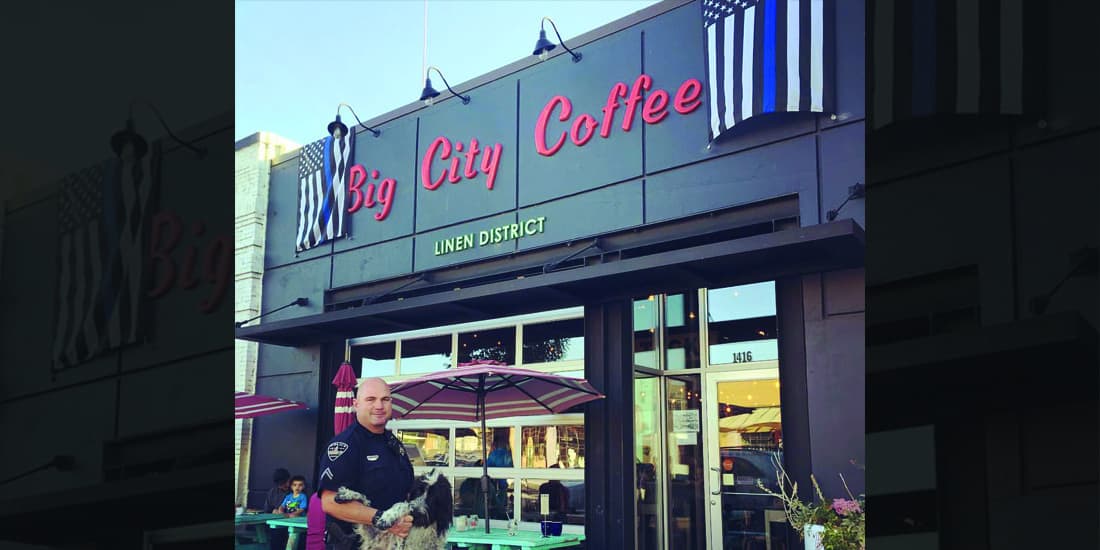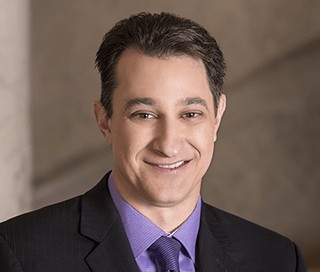



Boise State University officials would have the public believe they didn’t chase police-supporting Big City Coffee from campus. But university officials didn’t exactly encourage the small business to stay.
At a minimum the controversy has helped expose an ongoing effort from within the school’s administration and student body to make allegiance to a social justice agenda a condition for doing business on campus.
Big City Coffee arrived at Boise State this fall to replace Starbucks. Big City’s owner, Sarah Fendley, is engaged to Kevin Holtry, a Boise police officer who was shot five times in the line of duty. Fendley displays a small amount of pro-police imagery in her original shop, located on Grove Street in downtown Boise.
BSU’s contract with Big City for a satellite coffee shop became the immediate source of contention from campus activists, including Ryann Banks, a student and vice president of the school’s Inclusive Excellence Council. The council’s Sept. 29 meeting minutes state, Banks complained that the university used “limited white feedback” when it selected Big City and that “political affiliation and race” weren’t considered.
The comments from Banks and another student prompted Leslie Webb, BSU’s Vice President for Student Affairs and Enrollment Management, to offer assurances that the school would “create a better process moving forward.” Webb said she had already let the university’s vendor for dining services know about the school’s new process. Webb is a member of BSU President Marlene Tromp's leadership team
“I do believe we missed it and got caught in the urgency of it,” Webb is quoted in the minutes as saying. “The timeline got condensed in order to get something in and it is not a thorough or inclusive process.”
“Urgency and unintentionally or unintentionally avoiding marginalized students is white supremacy, and we need to call it out for what it is,” Banks responded.
Webb replied, “I hear you Ryann. I am committing to you right now that I am going to commit to action orientated movement for the future.”
Meeting minutes also reveal that Francisco Salinas, BSU’s assistant to the vice president for equity initiatives, proposed “holding Big City accountable by providing scholarships to marginalized students.”
“In contracts you can ask for human rights to be a part of it. That is a step moving in the right direction and will begin to influence others,” Salinas told the students. At an Inclusive Excellence Council meeting earlier in the month, Salinas said, pushback against Big City could be “the beginning of a revolution where we say that we have a standard for corporate partnerships that we have.”
Salinas continued, “I believe we should have a standard that says we will not accept companies who act in certain ways because that will have a more lasting impact to protect students. It may be difficult but I think we should explore it.”
Officer Holtry told KBOI-AM’s Nate Shelman that Boise State officials did meet with his fiance Fendley and they proposed Big City provide scholarships and jobs for “people of color” as a concession for remaining on campus.
Nevermind that Big City Coffee had hired 24 female students to staff the library location. Oh, and we’re told that roughly half of those staffers were people of color.
Regardless, feeling unsupported and unwanted on campus, Big City Coffee opted to shutter its shop.
“They just wanted her gone,” Holtry said. “She knows she’s not going to get support from the university.”
To deflect the controversy, Boise State University released a statement this past Wednesday that says, in part, “at no time did the administration at Boise State ask Big City Coffee to leave campus. At no time did the administration ask Big City Coffee to compromise the owner’s First Amendment rights.”
That is, at best, partially true. The full story is, university staff validated students’ bogus concerns about racism and got behind the students’ proposal to extort money in the form of race-based scholarships from Big City. And university employees are making plans to keep doing it to other vendors.
The university could have easily — publicly or privately -- voiced support for the coffee shop. It didn’t. No doubt, university officials would have rallied if the coffee shop had liberal owners who were being criticized by conservatives for hosting pro-Black Lives Matter content.
In this case, Big City’s support for law enforcement was enough for the campus administration and activist students to create a hostile environment so untenable that exiting was Big City’s only viable option. If the school’s radical Marxist students and employees get to keep calling the shots, you can count on more cancel culture, more thought police, and more political extremism at Boise State and the rest of Idaho's public colleges and universities.


